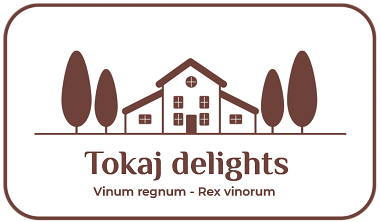The first mentions of grape growing in the Tokaj region date back to the 2nd century AD, to the time of the Roman emperor Marcus Aurelius Probus. However, the foundations for the current form of Tokaj winemaking were laid by the Hungarian king Belo IV. in the 13th century. After the devastating wars, he asked the Italian winemakers to restore the local vineyards. They brought new varieties that became the basis for unique Tokaj wines.

Tokaj winemaking experienced its greatest flourishing in the 17th century, when it became famous throughout Europe and reached the table of the French king Louis XIV. He allegedly called it "Vinum regnum - rex vinorum", i.e. "Wine of kings - king of wines". At that time, the fame of Tokaj wines reached as far as the tsar's court in Russia. For example, Pope Julius III was also a great lover of Tokaj. At a lunch during the Council of Trent in 1551, where Tokaj was served, he is said to have declared: "Such wine belongs on the papal table."

One of the most significant milestones in the history of Tokaj was the year 1737, when the Tokaj region was officially defined by the decree of Empress Maria Theresa. It thus became historically the first precisely defined vineyard area in the world. This decree established strict rules for the cultivation of vines and the production of Tokaj wine, laying the foundations for the future glory and quality of this jewel.
It originally consisted of 31 municipalities in the vicinity of the city of Tokaj. After the creation of Czechoslovakia in 1918, four municipalities (Malá Tňa, Veľká Tňa, Viničky and Slovenské Nové Mesto) also with the right to use the designation "Tokajské" belonged to the new state. After the breakup of Czechoslovakia in 1993, this right was acquired by the independent Slovak Republic.
Tokaj wine quickly won the hearts and minds of important personalities throughout the centuries. It was enjoyed by many kings and emperors, including Louis XIV, who called it "the king of wines and the wine of kings". Even the Russian Tsar Peter the Great fell in love with Tokaj wine and allegedly used it as medicine. It is even said that on his orders, vineyards were planted in Tokaji so that he would always have enough of this precious juice.
The fame of Tokaj wine crossed the borders of the royal courts and reached the world of art and literature. Many giants of the pen, such as Goethe, Voltaire or Beethoven, praised its unique taste and aroma in their works. Hungarian poet Sándor Petőfi even wrote: "God created Tokaj wine to show people how wonderful life can be."
Perhaps the most beautiful story about Tokaj wine is connected with Pope Benedict XIV. In 1750, he received a rare Tokaj wine as a gift from Empress Maria Theresa. The Pope was so enchanted by its taste that he exclaimed: "This is a wine worthy of the altar!" Since then, Tokaj wine has been used at Masses in the Vatican and earned the nickname "wine of the popes".
In addition to monarchs such as Louis XIV. or the Hungarian Queen Mária Theresia, who acquired the famous Szarvasské vineyards in 1741, other well-known artists also liked Tokaj. For example, the legendary composer Joseph Haydn received a barrel of Tokaj selection from his patron Prince Esterházy as a reward for his work.
Although the Tokaj wine industry was hit by various blows in the past, such as the phylloxera epidemic at the end of the 19th century or the onset of communism, it always recovered and continued its glorious tradition. Today, Tokaj is one of the most important wine regions in the world. Its wines are unique thanks to the special location of the vineyards, the volcanic bedrock, the local microclimate, but especially thanks to the skill and care of the winemakers who have been creating liquid gold here for centuries - sweet Tokaian treasures.
